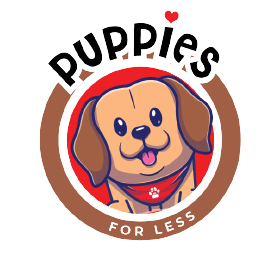Introduction
Welcoming a new puppy into your home brings joy, but it also comes with responsibilities, especially when it comes to nutrition. Puppies have unique dietary needs compared to adult dogs. Understanding these needs is essential for promoting healthy growth, strong muscles, and a robust immune system. This puppy nutrition guide covers everything from feeding schedules to choosing the right food and avoiding common mistakes, ensuring your puppy gets the fuel they need to thrive.
Table of Contents
1. Puppy Feeding Schedule by Age
Puppies grow rapidly, and their feeding schedule should reflect their changing needs as they develop. Here’s a breakdown by age:
- 6-12 Weeks: During this period, puppies should be fed small, frequent meals—typically four times a day. This ensures they have consistent energy for their growth spurts.
- 3-6 Months: You can reduce feedings to three times a day while gradually increasing portion sizes.
- 6-12 Months: Large breed puppies may continue with three meals a day, while smaller breeds can switch to two meals daily.
Monitoring their appetite and growth is key, so be flexible and adjust accordingly.
2. Choosing the Right Puppy Food Types

Choosing the right food is crucial for ensuring balanced nutrition. Puppy food typically comes in two main types:
- Dry Kibble: A popular choice due to its convenience and dental benefits. It’s also less expensive than wet food.
- Wet Food: Known for its high moisture content, wet food is often more palatable for picky eaters. However, it can be more expensive.
Regardless of the type, make sure to choose premium puppy food with high-quality ingredients that meet the Association of American Feed Control Officials (AAFCO) standards.
3. Large Breed vs. Small Breed Puppy Nutrition
The size of your puppy plays a significant role in their dietary needs:
- Large Breed Puppies (e.g., Labradors, German Shepherds) need a diet that supports slower, steady growth to prevent joint issues.
- Small Breed Puppies (e.g., Chihuahuas, Shih Tzus) require energy-dense food since their metabolisms are faster, and they burn calories more quickly.
Ensuring the correct portion sizes and the right nutritional balance will help prevent health issues like obesity or joint problems.
4. Puppy Growth Monitoring and Weight Tracking
Keeping track of your puppy’s growth is essential for ensuring they’re developing properly. Regular weight checks help you adjust food portions as necessary. A puppy that’s too thin may need more food, while one that’s gaining weight too fast may need portion control.
Tip: Most vets provide growth charts for puppies, which can be an invaluable tool for monitoring healthy development.
5. Understanding Puppy Nutritional Requirements
A balanced puppy diet includes key nutrients for proper growth:
- Proteins: Crucial for muscle development.
- Fats: Provide energy and support brain function.
- Carbohydrates: Supply energy and fiber for digestion.
- Calcium and Phosphorus: Essential for bone and teeth development.
- Vitamins and Minerals: Important for immune health and overall well-being.
Puppy food that meets AAFCO standards should cover these nutritional needs.
6. The Weaning Process: Transitioning to Solid Food

Weaning is the process of transitioning puppies from their mother’s milk to solid food. This typically starts around 4 weeks of age and continues until about 8 weeks. During this stage, you can mix puppy food with water or formula to create a gruel-like consistency. Gradually reduce the liquid as the puppy becomes more comfortable with solid food.
7. Puppy Food Transition: When and How to Switch
As your puppy approaches their first birthday, it’s time to transition them to adult dog food. This process should be gradual to avoid digestive upset. Start by mixing a small amount of adult food with their puppy food, slowly increasing the ratio of adult food over a week.
8. Supplements and Treats: What’s Safe for Puppies?
While most premium puppy foods are designed to meet all nutritional requirements, some situations may call for supplements. Consult with your vet before adding supplements to your puppy’s diet. Treats should be used sparingly, ideally no more than 10% of their daily caloric intake.
9. Homemade Puppy Food: A Healthy Option?
Homemade puppy food can be a healthy alternative if done correctly. The challenge lies in ensuring that the homemade diet includes all necessary nutrients. Always consult your vet before switching to a homemade diet to avoid any nutritional imbalances.
10. Puppy Food Quality: What to Look For in Ingredients
When selecting puppy food, look for the following on ingredient labels:
- Whole Meat or Meat Meal as the primary ingredient.
- No Fillers: Avoid foods with corn, soy, or wheat as primary ingredients.
- No Artificial Preservatives: Look for natural preservatives like Vitamin E.
11. Puppy Food and Muscle Development
Proteins are the building blocks of muscles, and puppies need a diet rich in high-quality protein for muscle development. Choose food that lists meat as the first ingredient to ensure your puppy’s muscle growth is well-supported.
12. Building Strong Bones: The Role of Calcium in Puppy Diets
Dogs are generally highly active animals and require large amounts of nutrition in their diet, one such nutritional supplement they require is calcium. Calcium is needed for the body to develop strong bones and teeth. However an excess of calcium can cause large breed puppies skeletal problems.
As a responsible owner you have to make sure that your puppy’s food is balanced enough so that the proper amount of calcium and phosphorus are absorbed by your puppy’s body to promote a healthy development of strong and stable skeletal structure and avoid the risk of over-supplementation.
13. Moisture Content in Puppy Food: Does it Matter?

The amount of moisture in your puppy’s food can play an important role in digestion and hydration of your little canine. Wet food provides a high level of hydration which can be beneficial for puppies that do not drink water or avoid drinking water. However dry food can also have its own benefits, as a responsible dog owner it is your job to make sure that your puppy has a proper balanced water and food intake to promote healthy growth.
14. The Role of Protein in Energy and Growth
Protein is the staple nutrient and the main source of energy for puppies. Dogs need a proper diet with a minimum amount of 22-30 percent of protein in their food to cater to their growth and provide high energy levels. Protein deficiency can easily cause muscle degradation and low energy levels and can cause your dog to become lethargic and prone to diseases.
15. Puppy Diet Mistakes to Avoid
Common diet mistakes many new owners make with their puppies can cause their dogs to grow ill, not grow according to their age and turn them ill. Not having a proper dietary plan can be a fatal mistake for your puppy.
- Overfeeding is one of the most dangerous mistakes a puppy owner can make, new owners quickly fall in love with their puppy and forget to say the word “no” to their seemingly over-eating puppies, it is important to take a note of everytime you feed your dog and is highly crucial to not give in to your puppies cute demeanor when they crave food even though they just ate.
- Certain types of food can be highly toxic to puppies and dogs, for example chocolate or onions, it is crucial for dog owners to realize that human food cannot be given to puppies as it causes fatal after-effects.
Conclusion
A balanced diet is crucial for your puppy’s healthy growth. By following the right feeding schedule, selecting high-quality food, and understanding your puppy’s specific nutritional needs, you’ll set your furry friend up for a healthy and happy life.
FAQs
How often should I feed my puppy?
Puppies should be fed four times daily up to 12 weeks, then reduce to three times until 6 months. After that, two meals a day is usually sufficient.
When can I switch my puppy to adult food?
Most puppies can transition to adult food between 12-18 months, depending on their breed size.
Can I give my puppy supplements?
Consult with your vet before giving your puppy supplements. Most premium puppy foods contain all necessary nutrients.
Is wet or dry food better for puppies?
Both have benefits. Wet food is hydrating and palatable, while dry food is better for dental health and more convenient.
How can I prevent my puppy from getting overweight?
Stick to portion guidelines based on their age and weight, monitor their growth, and avoid overfeeding with treats.





This article is such a gem! It’s packed with great and
relevant info, especially for those of us who are committed to improving our lifestyle.
I am impressed with how you simplify complex topics into easy-to-apply suggestions that’s easy
to apply. I’ll definitely be referencing this on my blog about healthy eating, as I’m sure my
readers will appreciate your insights super helpful.
Thanks for creating such a great piece!